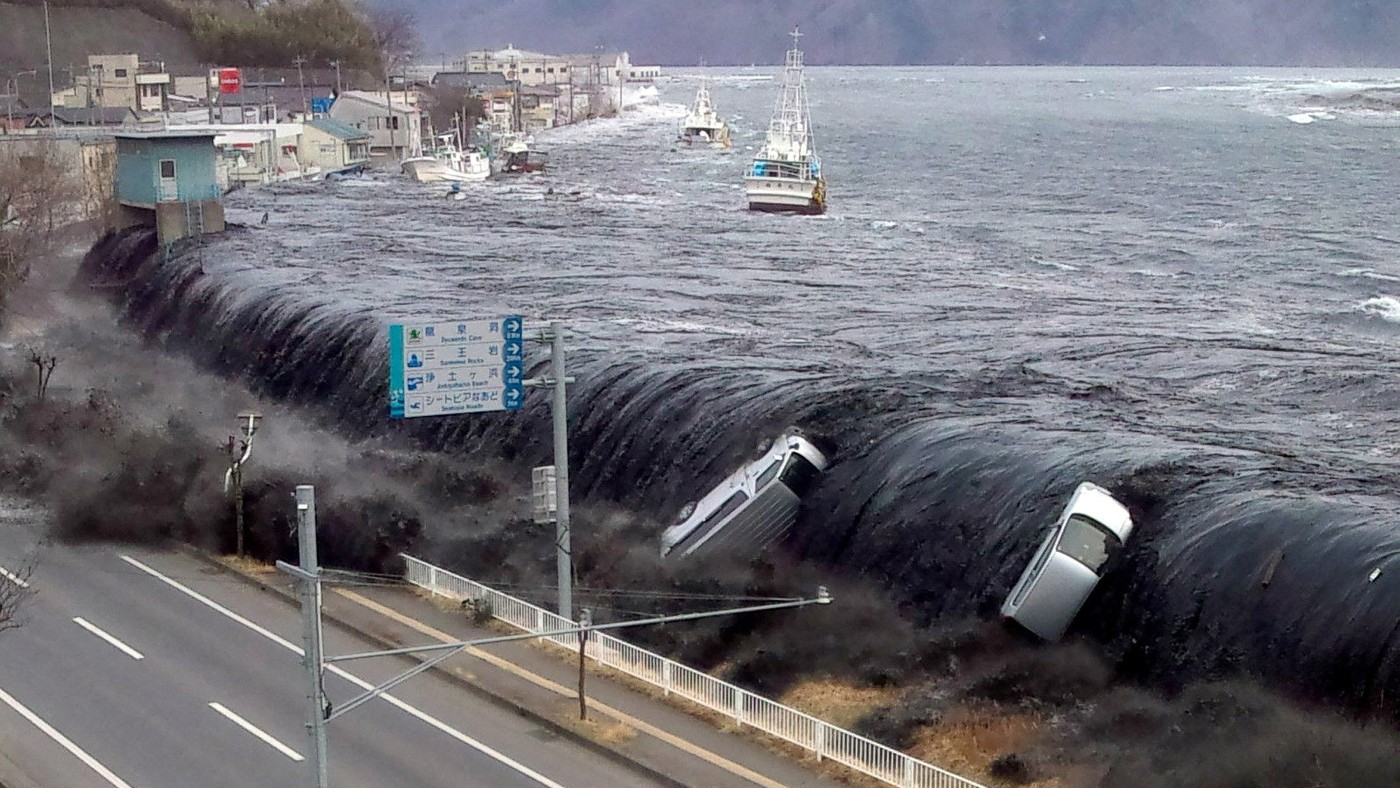The Mediterranean cities preparing for a tsunami
Cannes, Marseille and Istanbul are among the places that should be bracing for a tidal wave, says Unesco

A free daily email with the biggest news stories of the day – and the best features from TheWeek.com
You are now subscribed
Your newsletter sign-up was successful
A tsunami in the Mediterranean is “very” likely within the next 30 years, an expert has warned.
Unesco’s Vladimir Ryabinin said the effects of such an event could be “catastrophic” and “we have to be prepared for it”.
Why are Mediterranean cities preparing?
Unesco, the UN’s educational, scientific and cultural organisation, said a tsunami could soon hit major cities on or near the Mediterranean, including Marseille, Alexandria and Istanbul, said The Guardian. It said there is a nearly 100% chance of a wave reaching more than a metre high in the next 30 years.
The Week
Escape your echo chamber. Get the facts behind the news, plus analysis from multiple perspectives.

Sign up for The Week's Free Newsletters
From our morning news briefing to a weekly Good News Newsletter, get the best of The Week delivered directly to your inbox.
From our morning news briefing to a weekly Good News Newsletter, get the best of The Week delivered directly to your inbox.
Although tsunamis are not often associated with Europe, one of the deadliest earthquakes in history hit Portugal on All Saints’ Day in 1755, generating waves six metres high in Lisbon and Cádiz.
Nature said an “enigmatic” tsunami was sparked by an earthquake in 1693, with more than 60,000 causalities and widespread destruction in southeastern Sicily.
More recently, the Greek island of Samos in the Aegean Sea was hit by a tsunami in 2020.
How are they preparing?
Next week, Unesco will announce the global deployment of the “Tsunami ready” programme, which will train at-risk coastal communities in how to prepare for a tsunami by 2030.
A free daily email with the biggest news stories of the day – and the best features from TheWeek.com
Bernardo Aliaga, lead tsunami expert at Unesco, said: “Work has been done to establish 12 tsunami-warning centres covering most of the ocean, including the Mediterranean.”
The Guardian said the warning centres include five in the Mediterranean and north-east Atlantic, including Greece, Turkey, Italy, France and Portugal.
Authorities in Alexandria, Istanbul, Marseille, Cannes and Chipiona are also working on “tsunami-ready” preparedness, including evacuation signs and procedures, as well as plans for warning tourists.
“We want 100% of communities, where there is a proven hazard, to be ready to respond by 2030,” said Aliaga. “They will have evacuation maps, they will have carried out exercises and they will already have in place 24-hour alerts.”
Other “readiness indicators” required by Unesco include outreach and public awareness campaigns, and the staging of a community tsunami exercise at least every two years, said The Local.
The risk of tsunamis is underestimated in most areas, including the Mediterranean, said Aliaga. “We need to get the message out,” he said. “In the Mediterranean, there is no question about it: it is not if, it’s when.”
What risk is there for the UK?
With preparations underway in Europe, could a major earthquake and tsunami hit Britain? “The short answer is no,” said the British Geological Survey, because “huge mega-thrust earthquakes” only happen in certain areas of the world – at so-called “plate boundary subduction zones”.
However, scientists have found evidence of a tsunami reaching the northeast coast of England around 8,000 years ago, noted the House of Lords Library. It is thought this was caused by an underwater landslide off the coast of Norway leading to a wave that may have been around 20 metres high crashing over the Shetland Islands.
What is a tsunami?
A tsunami is a series of ocean waves that sends surges of water, sometimes reaching heights of more than 30 metres, on to land, explained National Geographic. They can cause widespread destruction when they crash ashore.
Most are caused by earthquakes but 10% are the result of volcanic activity and landslides, and 2% come from meteorological events.